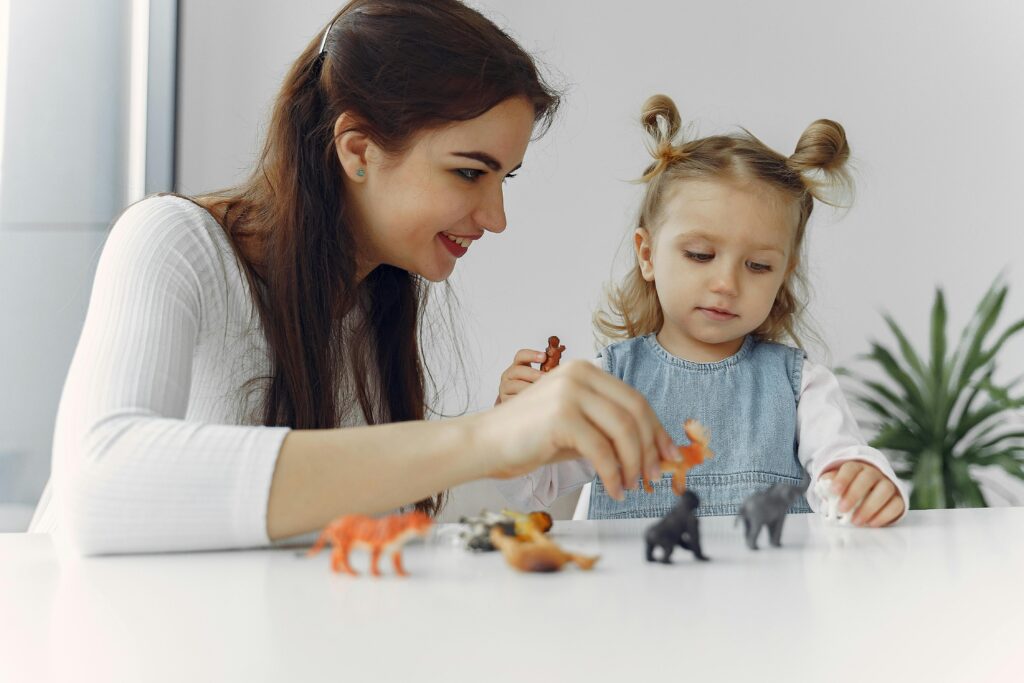Early childhood development milestones are crucial indicators of a child’s growth in various domains, including physical, cognitive, emotional, and social development. These milestones provide a framework for parents, caregivers, and professionals to monitor a child’s progress and identify any potential delays. Here’s an overview of key milestones from birth to five years:

Birth to 6 Months
Physical Development:
- 0-2 Months: Moves head side to side; begins to push up when lying on tummy; makes smoother movements with arms and legs.
- 3-4 Months: Holds head steady, unsupported; pushes down on legs when feet are on a hard surface; can roll over from tummy to back.
- 5-6 Months: Rolls over in both directions; begins to sit without support; rocks back and forth, sometimes crawling backward before moving forward.
Cognitive Development:
- 0-2 Months: Pays attention to faces; begins to follow things with eyes; recognizes people at a distance.
- 3-4 Months: Watches faces closely; begins to recognize familiar objects and people at a distance.
- 5-6 Months: Looks around at things nearby; brings things to mouth; shows curiosity about things and tries to get things that are out of reach.
Social and Emotional Development:
- 0-2 Months: Begins to smile at people; can briefly calm themselves (may bring hands to mouth and suck on hand).
- 3-4 Months: Smiles spontaneously, especially at people; likes to play and may cry when playing stops.
- 5-6 Months: Knows familiar faces and begins to know if someone is a stranger; likes to play with others, especially parents.
7 to 12 Months
Physical Development:
- 7-9 Months: Sits without support; crawls; pulls to stand.
- 10-12 Months: Stands alone; may take a few steps without holding on; walks holding on to furniture.
Cognitive Development:
- 7-9 Months: Looks for things they see you hide; plays peek-a-boo.
- 10-12 Months: Explores objects in many ways (shaking, banging, throwing); finds hidden things easily; begins to use objects correctly (e.g., drinking from a cup).
Social and Emotional Development:
- 7-9 Months: May be afraid of strangers; has favorite toys.
- 10-12 Months: Shy or nervous with strangers; cries when mom or dad leaves; shows fear in some situations.
1 to 2 Years
Physical Development:
- 12-18 Months: Walks alone; begins to run; pulls toys while walking.
- 18-24 Months: Walks up and down stairs holding on; throws ball overhand; makes or copies straight lines and circles.
Cognitive Development:
- 12-18 Months: Knows what ordinary things are for (e.g., telephone, brush); points to get the attention of others; shows interest in a doll or stuffed animal by pretending to feed.
- 18-24 Months: Begins to sort shapes and colors; completes sentences and rhymes in familiar books; plays simple make-believe games.
Social and Emotional Development:
- 12-18 Months: Hands you a book when they want to hear a story; may have temper tantrums; shows affection to familiar people.
- 18-24 Months: Shows defiant behavior; plays mainly beside other children but is beginning to include other children, such as in chase games.
2 to 3 Years
Physical Development:
- Climbs well; runs easily; pedals a tricycle; walks up and down stairs, one foot on each step.
Cognitive Development:
- Can work toys with buttons, levers, and moving parts; plays make-believe with dolls, animals, and people; follows two- or three-step instructions.
Social and Emotional Development:
- Copies adults and friends; shows affection for friends without prompting; takes turns in games.
3 to 4 Years
Physical Development:
- Hops and stands on one foot up to two seconds; catches a bounced ball most of the time; pours, cuts with supervision, and mashes own food.
Cognitive Development:
- Can name some colors and numbers; understands the idea of counting; starts to understand time; remembers parts of a story.
Social and Emotional Development:
- Would rather play with other children than by themselves; cooperates with other children; often can’t tell what’s real and what’s make-believe.
4 to 5 Years
Physical Development:
- Stands on one foot for 10 seconds or longer; hops; may be able to skip; can do a somersault; uses a fork and spoon and sometimes a table knife.
Cognitive Development:
- Counts 10 or more things; can draw a person with at least six body parts; prints some letters or numbers; copies a triangle and other geometric shapes.
Social and Emotional Development:
- Wants to please friends; wants to be like friends; more likely to agree with rules; likes to sing, dance, and act.
